miércoles, 27 de febrero de 2013
Signals Why Brand Value Still Matters
Signals Why Brand Value Still Matters RELATED QUOTES Symbol Price Change PVH 74.26 +0.36 RL 143.11 -1.43 PVH's (NYSE: PVH - News) 2010 acquisition of Tommy Hilfiger turned out to be a good long-term prospect. PVH posted a handsome growth in profits in its third quarter, spurred mainly by Tommy's international sales. The growth speaks volumes for PVH, known to be a high-end clothier trying to sail through a struggling, cash-strapped economy. Let us take a closer look at what makes PVH tick. Good third-quarter showing PVH's net income came in at $112.2 million, a 12% rise from $99.8 million in the year-ago period. Continued healthy sales for both its Calvin Klein and Tommy Hilfiger brands of clothes spurred this growth. Strong sales, both domestic and international, also boosted revenue by 9% from last year to $1.65 billion. This even exceeded management expectations. Tommy Hilfiger, in particular, went a notch ahead of Calvin Klein, as the former's strong international sales base led it to post an earnings increase of 27% over Calvin Klein's 13%. Naturally, PVH felt confident enough to raise its full-year outlook. What spurred the growth Tommy Hilfiger's strong international sales were a major boost to PVH's third-quarter figures, as the brand registered a 17% growth in revenue over last year, spurred by key markets such as the United Kingdom, Italy, and France. Of course, one of the main reasons behind Tommy Hilfiger's acquisition was because the former is known to generate a large chunk of its revenue from international markets. But then, its other flagship brand Calvin Klein was not far behind either as its revenues went up by a healthy 11%. However, PVH needs to check back on its competitors' progress as well. For instance, rival Ralph Lauren (NYSE: RL - News) also cashed in on robust sales figures to post a 14% increase in second-quarter profits. PVH needs to be particularly wary of Ralph Lauren, which is a highly aspirational brand, and whose overseas revenue is around 38% of the consolidated total. Ralph Lauren also caters to a similarly wealthy segment and is in the process of launching new brands such as Lauren footwear. The Foolish conclusion PVH is certainly not getting complacent as it aims to spend around $5 million more than what it did last year on international marketing, with the stress being on holiday campaigning through television and cinema. This is one company that has brand recall, caters to the high-end segment that is not really 'discount-dependant,' and has structured future plans. It may be a good idea to stock up on PVH. Fool contributor Subhadeep Ghose does not own shares of any of the companies mentioned in this article. Try any of our Foolish newsletter services free for 30 days. We Fools may not all hold the same opinions, but we all believe that considering a diverse range of insights makes us better investors. The Motley Fool has a disclosure policy.
miércoles, 13 de febrero de 2013
Signals Greece sets March 8 deadline for investors in bond swap
Signals Greece sets March 8 deadline for investors in bond swap The Parthenon on the Athens Acropolis is seen behind a Greek and an EU flag atop the Greek ministry of finance February 8, 2012. REUTERS/Yannis BehrakisEnlarge Photo The Parthenon on the Athens Acropolis is seen behind a Greek and an EU flag atop the Greek ministry of finance February 8, 2012. REUTERS/Yannis Behrakis ATHENS (Reuters) - Greece has set a March 8 deadline for investors to participate in its unprecedented bond swap aimed at sharply reducing its debt burden, according to a document outlining the offer. Greece formally launched the bond swap offer to private holders of its bonds on Friday, setting in motion the largest-ever sovereign debt restructuring in the hope of getting its finances back on track. In the document, Greece said the March 8 deadline could be extended if needed. Athens in the past has said it wants to conclude the transaction by March 12. The swap is part of a second, 130 billion euro ($175.02 billion) rescue package to claw Greece back from the brink of a default that had threatened to send shockwaves through the financial system and punish other weak euro zone members. ($1 = 0.7428 euros) (Reporting by George Georgiopoulos, Writing by Deepa Babington; Editing by Elaine Hardcastle)
martes, 12 de febrero de 2013
Forex Few good setups
Forex 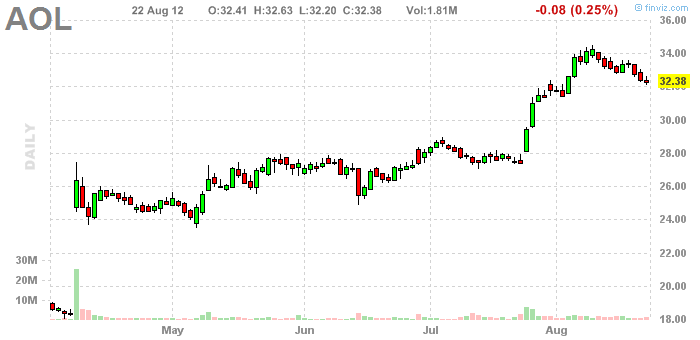
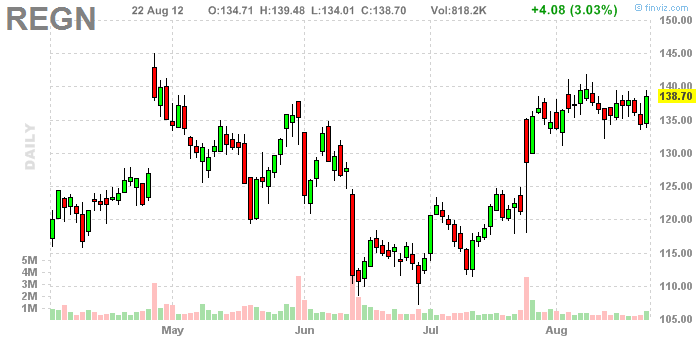
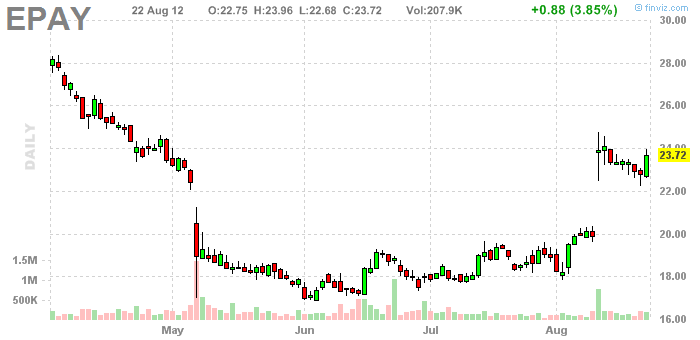
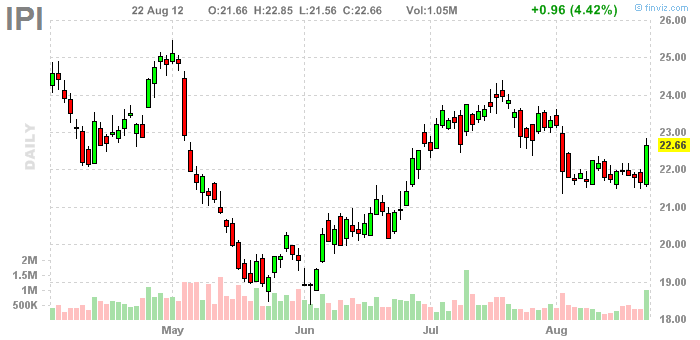
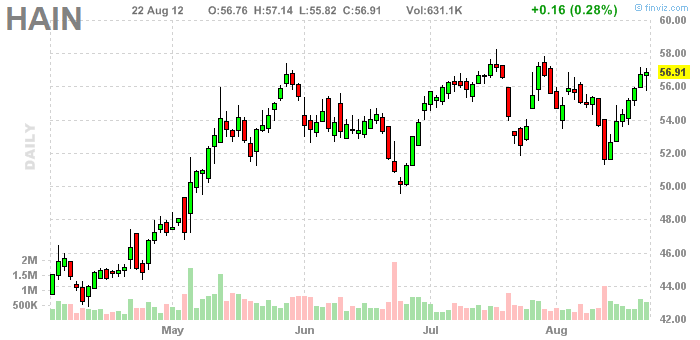


Swing Play

pullback play
Swing Play

145 possible target
Swing Play

24.5 possible target.
Swing Play

24 possible target
Stock To watch

Earnings last night.
lunes, 11 de febrero de 2013
Forex Global economy on recovery path, risks remain: IMF chief
Forex IMF Managing Director Christine Lagarde attends a Eurogroup meeting ahead of a two-day EU leaders summit in Brussels March 1, 2012. REUTERS/Francois LenoirView Photo IMF Managing Director Christine Lagarde attends a Eurogroup meeting ahead of a two-day EU leaders summit in Brussels March 1, 2012. REUTERS/Francois Lenoir By Nick Edwards and Koh Gui Qing BEIJING (Reuters) - The global economy has stepped back from the brink of danger and signs of stabilization are emerging from the euro zone and the United States, but high debt levels in developed markets and rising oil prices are key risks ahead, the IMF said on Sunday. 'The global economy may be on a path to recovery, but there is not a great deal of room for maneuver and no room for policy mistakes,' International Monetary Fund (IMF) Managing Director, Christine Lagarde, said in a speech in Beijing. In a separate talk on the same day, Lagarde said that China's yuan could become a reserve currency in the future, adding that the country needed a roadmap for a stronger, more flexible exchange rate system. She said signs of stabilization were emerging to show that policy actions taken in the wake of the global financial crisis were paying off, that U.S. economic indicators were looking a little more upbeat and that Europe had taken an important step forward in solving its crisis with the latest efforts on Greece. 'On the back of these collective efforts, the world economy has stepped back from the brink and we have cause to be more optimistic. Still, optimism must not lull us into a false sense of security. There are still major economic and financial vulnerabilities we must confront,' Lagarde said. The IMF chief cited still fragile financial systems burdened by high public and private debt persists advanced economies as the first of three major risks and said euro zone public sector and bank rollover funding needs in 2012 were equivalent total about 23 percent of GDP. 'Second, the rising price of oil is becoming a threat to global growth. And, third, there is a growing risk that activity in emerging economies will slow over the medium term,' she said. Lagarde also said youth unemployment should be tackled and that all countries must persevere with their policy efforts if the progress made in stabilizing the global economy is to pay off with better prospects ahead. She said advanced economies must continue with macroeconomic support and a balanced fiscal policy, together with financial sector reforms and structural and institutional reforms to repair the damage done by the crisis and to improve competitiveness. Meanwhile emerging market economies need to calibrate macroeconomic policies both to guard against fallout from the advanced economies as well as to keep overheating pressures in check. SEES A YUAN 'ON PAR' WITH CHINA'S STATUS Lagarde's comments on the yuan as a reserve currency were the most direct endorsement to date by an IMF official of China's ambitions for its currency. 'What is needed is a roadmap with a stronger and more flexible exchange rate, more effective liquidity and monetary management, with higher quality supervision and regulation, with a more well-developed financial market, with flexible deposit and lending rates, and finally with the opening up of the capital account,' she told a gathering of leading Chinese policymakers and global business leaders. 'If all that happens, there is no reason why the renminbi will not reach the status of a reserve currency occupying a position on par with China's economic status.' Renminbi is another name for the yuan. China operates a closed capital account system and its yuan currency is tightly controlled, although Beijing has said it wants to increase the international use of the yuan to settle cross border trade and has undertaken a series of reforms in recent years to that end. Lagarde said China had showed leadership and adept policy skills when the global financial crisis exploded and which might have been worse but for the impetus it provided to growth and stability. China unveiled a massive 4 trillion yuan ($635 billion) stimulus package for its economy at the end of 2008 as the financial crisis reverberated around the world and global trade -- which China's massive factory sector depends on for growth and jobs -- shuddered to a standstill. Lagarde further praised what she said was China's leadership and influence in global institutions such as the IMF and G20 group of the world's 20 biggest economies. 'China has been instrumental in helping to make the global economic system less prone to damaging crises,' she said, adding that lingering weaknesses in the global outlook reinforced the importance of China maintaining a prominent role in global policy discussions and accelerating reform in its own economy. Lagarde said she saw three priorities for China, the first to support growth; second, to shift its drivers of economic growth away from investment and exports towards domestic consumption; and third, to spread wealth more widely. The IMF chief said it was crucial that the world's major economies were working together with the same objective. 'We are all interconnected and we are all affected by each other's policy actions. We need to prepare for success together. If we stand together, the whole will be more than the sum of the parts,' Lagarde said. (Additional reporting by Kevin Yao; Editing by Don Durfee and Jonathan Thatcher)
martes, 5 de febrero de 2013
Forex Is the Euro Decoupling From U.S. Stocks?
Forex Is the Euro Decoupling From U.S. Stocks? Companies: EUR/USD S&P 500 NASDAQ Composite RELATED QUOTES Symbol Price Change EURUSD=X 1.2832 +0.0123 ^GSPC 1,291.87 -0.61 ^IXIC 2,715.73 +4.97 ^DJI 12,432.35 -17.10 FXE 127.78 +1.22 For much of the last 15 years the S&P 500 and euro (the EU currency) have been moving in the same direction. Since its May 4, 2011 high (the euro topped two days after U.S. stocks) the euro has tumbled 15%. Worse yet, the euro has been falling over the past few weeks even though the S&P has remained stable. Will the S&P soon catch up with the euro, or is the euro about to decouple its positive correlation with U.S. equities? Euro Problems Euro problems are the reason for the bad euro season. U.S. stocks got to enjoy the Santa Claus Rally while the euro was stuck with debt concerns that include: - Eurozone governments need to refinance more than $1.3 trillion in debt in 2012. - Yields on Italian bonds crept up about 7% again (above 7% yields send Greece into a tailspin). - Standard & Poor's is expected to strip France of its AAA rating as early as this month. - Spain's banks need to raise an extra $65 billion to cover bad property loans. - In February, Italy needs to sell more debt than could be covered even if investors used all the proceeds of maturing securities to buy the bonds. Euro Hope Things are so bad for the euro (EURUSD=X), they are good. So it seems at least. The chart below shows the euro holdings of the 'smart' and 'dumb' money published by the Commodity Futures Trading Commission. The first gray graph shows total non-reportable short positions. Non-reportable are small traders considered the dumb money. The second gray graph shows reportable commercial short positions. Commercial traders are the 'pros' that actually provide a commodity or instrument and are considered the smart money. The data shows that non-reportable short positions are pretty high right now (data as of Tuesday) while commercial traders have closed nearly all their short positions. Based on COT sentiment data, the euro should be close to a bottom, at least a temporary one. Cause for U.S. Stock Rally? But wouldn't a rising euro translate into rising U.S. stocks? Under normal circumstances, yes it would. A look at the chart below shows that a rising euro usually correlates with a rising S&P 500. The red boxes highlight periods of falling euro and rising S&P (such as lately). The green box identifies a period of time when a rising euro (NYSEArca: FXE - News) coincided with falling (even rapidly falling) U.S. stock prices. This happened from October 2007 - July 2008. Putting Odds in Your Favor It's no secret that I declared the rally from the October lows to be a counter trend rally. Back on October 2, I stated via the ETF Profit Strategy updated that: 'I don't think October will 'kill' this bear market, but it should spur a powerful counter trend rally. Towards the end of this rally Wall Street may applaud the Fed for launching Operation Twist and QE3 may be considered unnecessary. This kind of positive environment would be fertile soil for the next bear market leg (Q1 or Q2 2012). From a technical point of view this counter trend rally should end somewhere around 1,275 - 1,300.' To identify high-probability trade setups, I like to see technicals, sentiment, and seasonality point in the same direction, such as they did in early October. From a seasonal perspective, October has the reputation of a 'bear market killer.' Sentiment polls showed the most bearish readings in over a year and the VIX (Chicago Options: ^VIX) was close to the 2010 high. At the same time, the S&P had reached rock bottom support. Based on the weight of evidence, the October 2 ETF Profit Strategy update also predicted that: 'The ideal market bottom would see the S&P dip below 1,088 intraday followed by a strong recovery and a close above 1,088.' On October 4, the S&P briefly dipped below 1,088 and closed the day at 1,124. A massive counter trend rally was born that day. The Next Setup? Seasonality is once again turning bearish (or at the very least less bullish). Since 2002, the S&P reached a January top followed by a drop greater than 8% five (out of ten) times. 51.1% of all investment advisors and newsletter-writing colleagues (polled by II) are bullish on stocks (the highest reading since May 3) while only 17% of individual investors (polled by AAII) are bearish, the second lowest reading in six years. From a technical point of view, the S&P (SNP: ^GSPC - News) is about to reach a daunting resistance cluster comprised of Fibonacci levels and various long and short-term trend lines. The Dow (DJI: ^DJI - News) is about to encounter two trend lines that go back nearly five years. The resistance clusters for the Nasdaq (Nasdaq: ^IXIC - News), Russell 2000 (NYSEArca: IJR - News), and financials (NYSEArca: XLF - News) are not as glaring but they're there. The only thing that doesn't quite fit into the equation is the euro's sentiment data illustrated above. Nevertheless, the weight of evidence suggests that a turnaround for stocks, and possibly another significant market top, may be just around the corner. The high probability strategy is to short U.S. stocks as soon as the resistance cluster is reached or support is broken. The ETF Profit Strategy Newsletter identifies the target of this rally along with a short, mid and long-term outlook and the corresponding ETF profit strategies.
Earn Fitch cuts Italy, Spain, other euro zone ratings
Earn Fitch cuts Italy, Spain, other euro zone ratings RELATED QUOTES Symbol Price Change TRI 27.82 -0.10 Related Content People wait to enter a government job centre in Malaga, southern Spain, January 27, 2012. REUTERS/Jon Nazca People wait to enter a government job centre in Malaga, southern Spain, January 27, 2012. REUTERS/Jon Nazca NEW YORK (Reuters) - Fitch downgraded the sovereign credit ratings of Belgium, Cyprus, Italy, Slovenia and Spain on Friday, indicating there was a 1-in-2 chance of further cuts in the next two years. In a statement, the ratings agency said the affected countries were vulnerable in the near-term to monetary and financial shocks. 'Consequently, these sovereigns do not, in Fitch's view, accrue the full benefits of the euro's reserve currency status,' it said. Fitch cut Italy's rating to A-minus from A-plus; Spain to A from AA-minus; Belgium to AA from AA-plus; Slovenia to A from AA-minus and Cyprus to BBB-minus from BBB, leaving the small island nation just one notch above junk status. Ireland's rating of BBB-plus was affirmed. All of the ratings were given negative outlooks. Fitch said it had weighed up a worsening economic outlook in much of the euro zone against the European Central Bank's December move to flood the banking sector with cheap three-year money and austerity efforts by governments to curb their debts. 'Overall, today's rating actions balance the marked deterioration in the economic outlook with both the substantive policy initiatives at the national level to address macro-financial and fiscal imbalances, and the initial success of the ECB's three-year Long-Term Refinancing Operation in easing near-term sovereign and bank funding pressures,' Fitch said. Two weeks ago, Standard & Poor's downgraded the credit ratings of nine euro zone countries, stripping France and Austria of their coveted triple-A status but not EU paymaster Germany, and pushing struggling Portugal into junk territory. With nearly half a trillion euros of ECB liquidity coursing through the financial system, some of which has apparently gone into euro zone government bonds, and with hopes of a deal to write down a slab of Greece's mountainous debt, even that sweeping ratings action had little market impact. The euro briefly pared gains against the dollar after Fitch cut the five euro zone sovereigns but soon jumped to a session high of $1.3208, according to Reuters data, its highest since December 13. Italy is widely seen as the tipping point for the euro zone. If it slid towards default, the whole currency project would be threatened. Italian Prime Minister Mario Monti, a technocrat who has won plaudits for his economic reform drive, said he reacted to Fitch's downgrade of Italy with 'detached serenity.' 'They signal things that are not particularly new, for example, that Italy has a very high debt as a percentage of GDP and they signal that the way the euro zone is governed as a whole is not perfect and we knew that too,' he said during a live interview on Italian television. 'They also say things that give a positive view of what is being done in Italy because there is much appreciation for policies of this government and this parliament,' he said. Fitch said of Italy: 'A more severe rating action was forestalled by the strong commitment of the Italian government to reducing the budget deficit and to implementing structural reform as well as the significant easing of near-term financing risks as a result of the ECB's 3-year Longer-term Refinancing Operation.' (Reporting by Rodrigo Campos, Daniel Bases, Philip Pullela and Pam Niimi, writing by Mike Peacock, Editing by James Dalgleish)
Oil IMF leads global push for euro zone to boost firewall
Oil IMF leads global push for euro zone to boost firewall The head of the International Monetary Fund (IMF) Christine Lagarde attends a session at the World Economic Forum (WEF) in Davos, January 28, 2012. REUTERS/Christian Hartmann The head of the International Monetary Fund (IMF) Christine Lagarde attends a session at the World Economic Forum (WEF) in Davos, January 28, 2012. REUTERS/Christian Hartmann By Paul Carrel and Emma Thomasson DAVOS, Switzerland (Reuters) - International Monetary Fund chief Christine Lagarde led a global push on Saturday for the euro zone to boost its financial firewall, saying 'if it is big enough it will not get used.' Lagarde, supported by the British finance minister, George Osborne, said the IMF could boost its support for the euro zone but pressed its leaders to act first. Some attendees at the Davos Forum still doubted the viability of the currency union. Countries beyond the 17-country bloc want to see its members stump up more money before they commit additional resources to the IMF, which this month requested an additional 500 billion euros ($650 billion) in funding. 'Now is the time - there has been a lot of pressure building in order to see a solution come about,' Lagarde told a Forum panel discussion on the economic outlook from which euro zone leaders - most notably Germany - were conspicuously absent. 'It is critical that the euro zone members develop a clear, simple firewall that can operate both to limit the contagion and to provide this sort of act of trust in the euro zone, so that the financing needs of that zone can actually be met,' she said. Lagarde's comments rounded out a crescendo of calls at the Davos Forum for the euro zone to boost its financial defenses. The annual five-day conference began with German Chancellor Angela Merkel deflecting pressure to do so. In a carefully worded keynote address, Merkel suggested doubling or even tripling the size of the fund may convince markets for a time, but warned that if Germany made a promise that could not be kept, 'then Europe is really vulnerable.' On Friday, U.S. Treasury Secretary Timothy Geithner pressed Europe to make a 'bigger commitment' to boosting its firewall. Two bankers who attended meetings with Geithner at the Forum said on Friday the United States was looking for the euro zone to roughly double the size of its firewall to 1.5 trillion euros. There was no immediate comment from the U.S. Treasury. Osborne said the currency bloc must beef up its firewall before other countries increase their funding to the IMF. 'I think the euro zone leaders understand that,' said Osborne, the only European minister on Saturday's panel discussion on the global economic outlook in 2012. 'There are not going to be further contributions from G20 countries, Britain included, unless we see the color of their money,' he added, calling for the euro zone 'to provide a significant increase in available resources.' MORE OPTIMISM...FOR SOME Japanese Economics Minister Motohisa Furukawa echoed Osborne's comments, saying: 'Without the firm action of Europe, I don't think the developing countries like China or others are willing to pay more money for the IMF.' On condition that the euro zone boosts its own defenses, he said Japan and other countries were willing to additional support via the IMF. Lagarde said, however, that if the international lender's resources were boosted sufficiently, this would raise confidence to such a degree that they would not be needed. 'If it is big enough, it will not get used. And the same applies to the euro firewall for that matter,' she added. Japanese Prime Minister Yoshihiko Noda, speaking to the Forum by video link from Tokyo, said Japan was working with South Korea and India to reduce the risk of the euro zone crisis spreading to Asia. 'Japan stands ready to support the euro zone as much as possible,' he added. Mexico's central bank chief, Agustin Carstens, said on Friday he believed a consensus was building on boosting the IMF's resources to help European countries and others that might need aid from the global lender. There has been a palpable sense of hope at the Davos Forum that the euro zone is pulling back from the brink of catastrophe, though business leaders are equally worried that Europe's woes will hold back a global recovery. Osborne saw some signs of optimism. 'People have commented on the mood of this conference being quite somber but having been here for a couple of days people have also pointed out that actually people are slightly more optimistic at the end of the week than the beginning,' he said. However, Davos 2011 also ended on upbeat note about the euro zone and a feeling that worst of the crisis was over - only for the situation to deteriorate and financial markets to turn their fire on Italy, the bloc's third biggest economy. 'The euro zone is a slow-motion train wreck,' said economist Nouriel Roubini, made famous by predictions of the 2008-09 global banking crisis. He expected Greece, and possibly Portugal, to exit the bloc within the next 12 months and believed there is a 50 percent chance of the bloc breaking up completely in the next 3-5 years. Hong Kong's Chief Executive, Donald Tsang, said no matter how strong the euro zone's firewall is, the market will look at the nature of the economies it is protecting. 'If it is protecting insolvent economies...no matter how strong the firewall is, it won't survive,' he said. (Additional reporting by Ben Hirschler; Editing by Jon Boyle)
Suscribirse a:
Entradas (Atom)